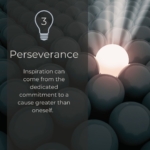How Do You Know If You Are Drunk On Power?
In 2020, Michelle Gibbings, from LEADERONOMICS, wrote a great article entitled, Four Warning Signs That You Are Drunk On Power. https://lnkd.in/gs5kSAZh.
Gibbings lists four warning signs:
- The leader thinks their rights and needs outweigh those of others and so their decision making is all about what works best for them.
- The leader stops listening to the ideas and opinions of others, believing that their knowledge and insights hold more weight and value than others.
- They ignore feedback from people seeing it as unhelpful and irrelevant, rather than reflecting on what is driving the feedback and what they may want to adjust to be more effective.
- They believe they are smarter than others and have little more to learn, and so they stop seeking out new ideas and diversity of thought.
What I’ve learned from the best leaders over the years is that titles don’t give you greater power. What they give you is greater accountability.










